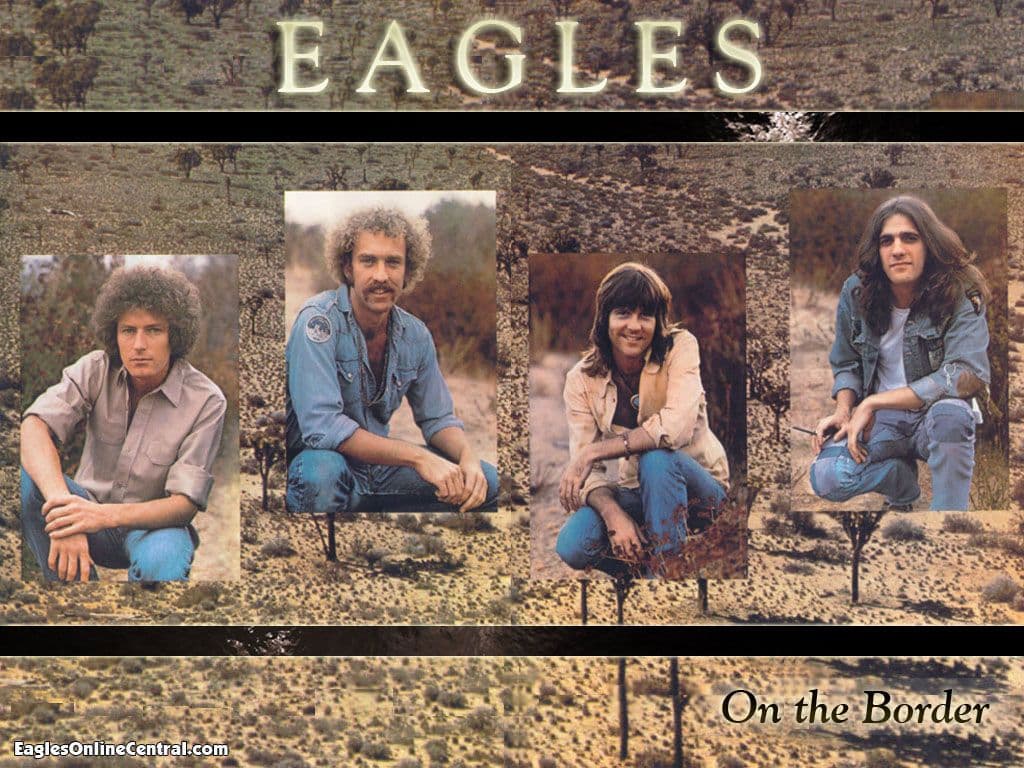
A Shift in Direction: The Eagles’ On the Border and the Hardening of Their Sound
The Eagles, initially known for their laid-back, country-rock infused sound, took a significant step towards a harder, more rock-oriented direction with their third studio album, On the Border, released in the spring of 1974. This wasn’t just another album release; it marked a pivotal moment in the band’s evolution, a conscious effort to broaden their musical palette and move beyond the established expectations of their early work. Peaking at number 17 on the Billboard charts and achieving double platinum status, On the Border proved that the Eagles’ change was well received by audiences.
The decision to bring in Bill Szymczyk to co-produce the album (alongside Glyn Johns, who handled two tracks) was a key factor in this sonic shift. While Johns had overseen their first two albums, establishing their country-rock foundation, the band felt a need to inject more raw energy and guitar-driven arrangements into their music. Szymczyk, known for his work with rock acts like Joe Walsh, was the perfect choice to facilitate this transition. This change of producer was a clear statement of intent, signaling the band’s desire to explore new musical territories.
On the Border also marked the arrival of guitarist Don Felder, a crucial addition to the Eagles’ lineup. Felder’s presence brought a new dimension to the band’s sound, adding a harder edge and more intricate guitar work. His contributions are immediately apparent on tracks like the title track and “Already Gone,” which showcase his distinctive playing style and helped define the Eagles’ evolving sound. This addition proved to be a turning point for the band’s sound and solidified their place in rock history.
The album’s title, On the Border, can be interpreted in several ways. It could refer to the band’s geographic location at the time, their proximity to the Mexican border, or, more significantly, it could symbolize their position on the border between their established country-rock sound and their emerging rock identity. This metaphorical interpretation resonates deeply with the album’s overall feel, capturing the sense of transition and exploration that permeates the music.
While On the Border features some softer moments reminiscent of their earlier work, such as “Best of My Love,” which went to number one on the Billboard Hot 100, the overall tone is decidedly more rock-oriented. Tracks like “James Dean” and “Good Ol’ Days” showcase the band’s growing confidence in their ability to deliver powerful, guitar-driven rock songs. This blend of softer ballads and harder rock songs is what makes the album so compelling.
For those who remember the 1970s music scene, On the Border represents a significant step in the Eagles’ journey towards becoming one of the biggest rock bands in the world. It’s an album that captures a band in transition, exploring new sonic landscapes and solidifying their identity. It’s not just a collection of songs; it’s a snapshot of a band evolving, pushing their creative boundaries, and ultimately shaping the sound of rock music for years to come. It stands as a testament to the band’s ability to adapt and grow, making it a crucial piece of their musical legacy.